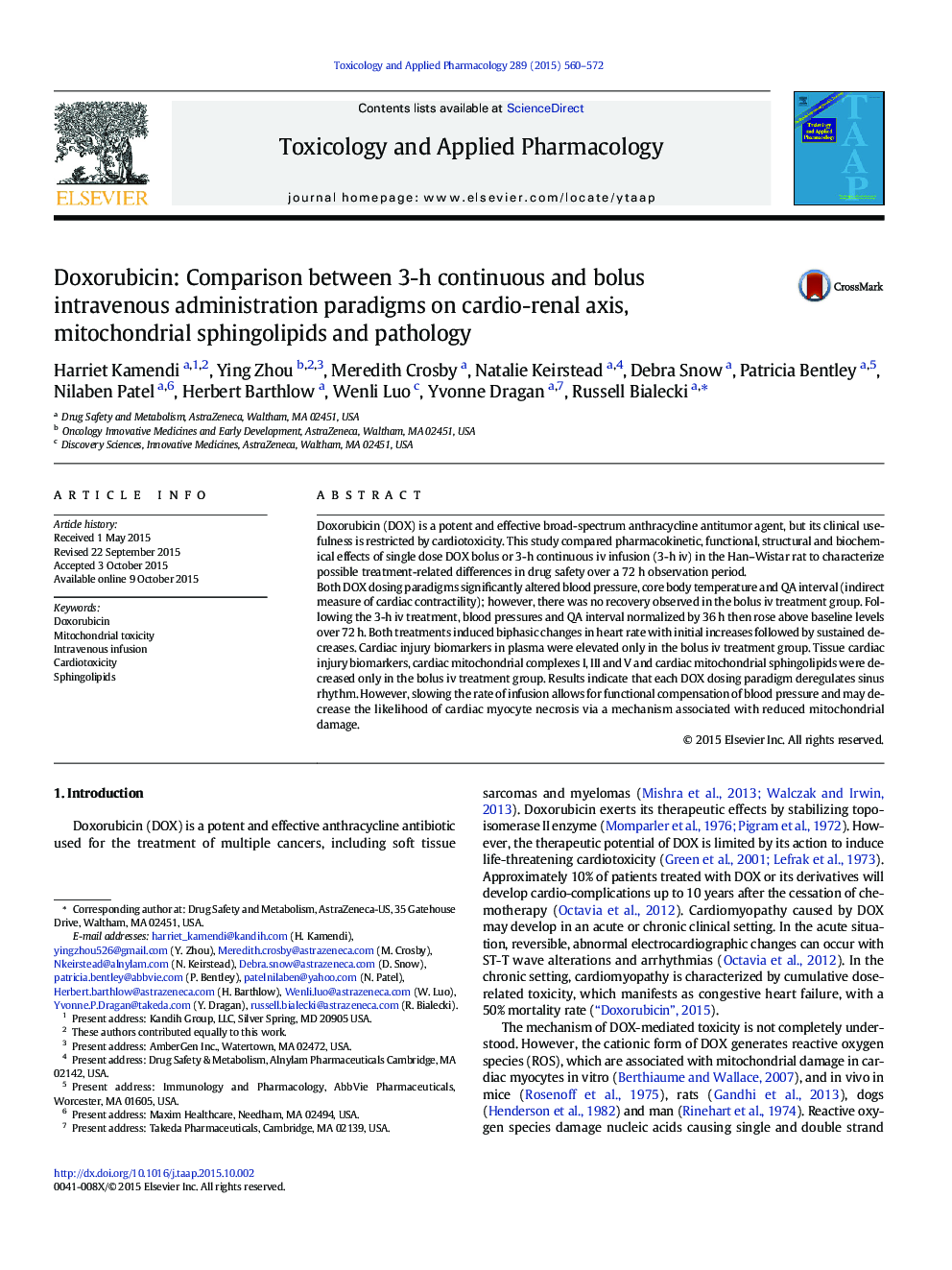| Article ID | Journal | Published Year | Pages | File Type |
|---|---|---|---|---|
| 2568289 | Toxicology and Applied Pharmacology | 2015 | 13 Pages |
•Despite damaging cardiomyocytes, continuous iv doxorubicin improves cardiovascular outcomes.•This study supports administration of doxorubicin via slow continuous iv infusion limits acute cardio-toxicity.•This study supports use of metabolomic-derived lipid biomarkers for improved quantification of cardiovascular risk.•This study supports systems-based physiological approach to generate a data that can greatly inform risk assessments.
Doxorubicin (DOX) is a potent and effective broad-spectrum anthracycline antitumor agent, but its clinical usefulness is restricted by cardiotoxicity. This study compared pharmacokinetic, functional, structural and biochemical effects of single dose DOX bolus or 3-h continuous iv infusion (3-h iv) in the Han–Wistar rat to characterize possible treatment-related differences in drug safety over a 72 h observation period.Both DOX dosing paradigms significantly altered blood pressure, core body temperature and QA interval (indirect measure of cardiac contractility); however, there was no recovery observed in the bolus iv treatment group. Following the 3-h iv treatment, blood pressures and QA interval normalized by 36 h then rose above baseline levels over 72 h. Both treatments induced biphasic changes in heart rate with initial increases followed by sustained decreases. Cardiac injury biomarkers in plasma were elevated only in the bolus iv treatment group. Tissue cardiac injury biomarkers, cardiac mitochondrial complexes I, III and V and cardiac mitochondrial sphingolipids were decreased only in the bolus iv treatment group. Results indicate that each DOX dosing paradigm deregulates sinus rhythm. However, slowing the rate of infusion allows for functional compensation of blood pressure and may decrease the likelihood of cardiac myocyte necrosis via a mechanism associated with reduced mitochondrial damage.
